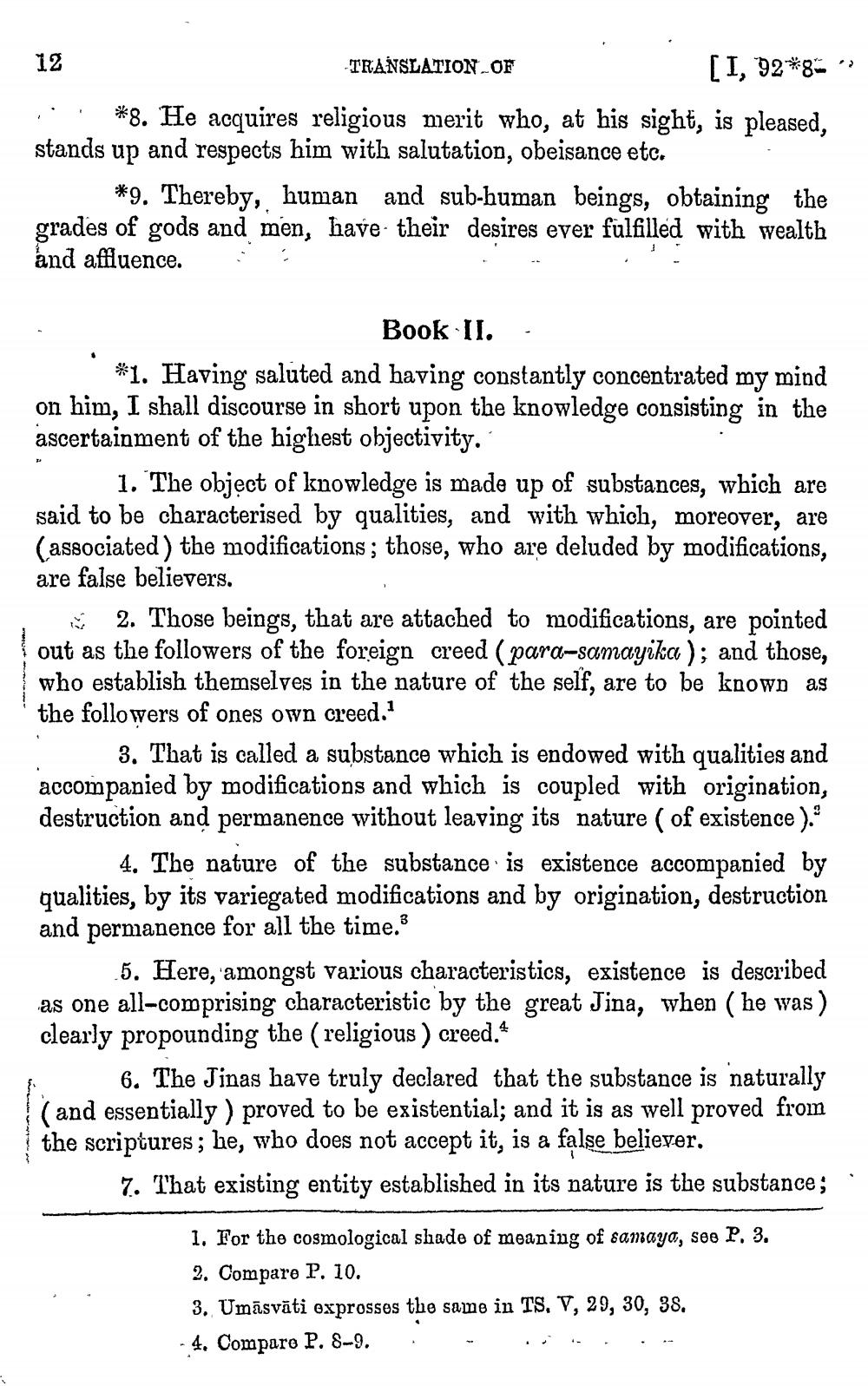________________
12 TRANSLATION OF
[I, 02*8" : : *8. He acquires religious merit who, at his sight, is pleased, stands up and respects him with salutation, obeisance etc.
*9. Thereby, human and sub-human beings, obtaining the grades of gods and men, have their desires ever fulfilled with wealth and affluence.
Book II. *1. Having saluted and having constantly concentrated my mind on him, I shall discourse in short upon the knowledge consisting in the ascertainment of the highest objectivity.
1. The object of knowledge is made up of substances, which are said to be characterised by qualities, and with which, moreover, are (associated) the modifications; those, who are deluded by modifications, are false believers.
2. Those beings, that are attached to modifications, are pointed out as the followers of the foreign creed (para-samayika ); and those, who establish themselves in the nature of the self, are to be known as the followers of ones own creed."
3. That is called a substance which is endowed with qualities and accompanied by modifications and which is coupled with origination, destruction and permanence without leaving its nature of existence )."
4. The nature of the substance is existence accompanied by qualities, by its variegated modifications and by origination, destruction and permanence for all the time.3
5. Here, amongst various characteristics, existence is described as one all-comprising characteristic by the great Jina, when ( he was ) clearly propounding the (religious ) creed.*
6. The Jinas have truly declared that the substance is naturally (and essentially ) proved to be existential; and it is as well proved from the scriptures; he, who does not accept it, is a false believer.
7. That existing entity established in its nature is the substance;
L
1. For the cosmological shade of meaning of samaya, see P. 3. 2. Compare P. 10. 3. Umāsvāti exprosses the same in TS. V, 29, 30, 38. 4. Compare P. 8-9. . - . . . -




